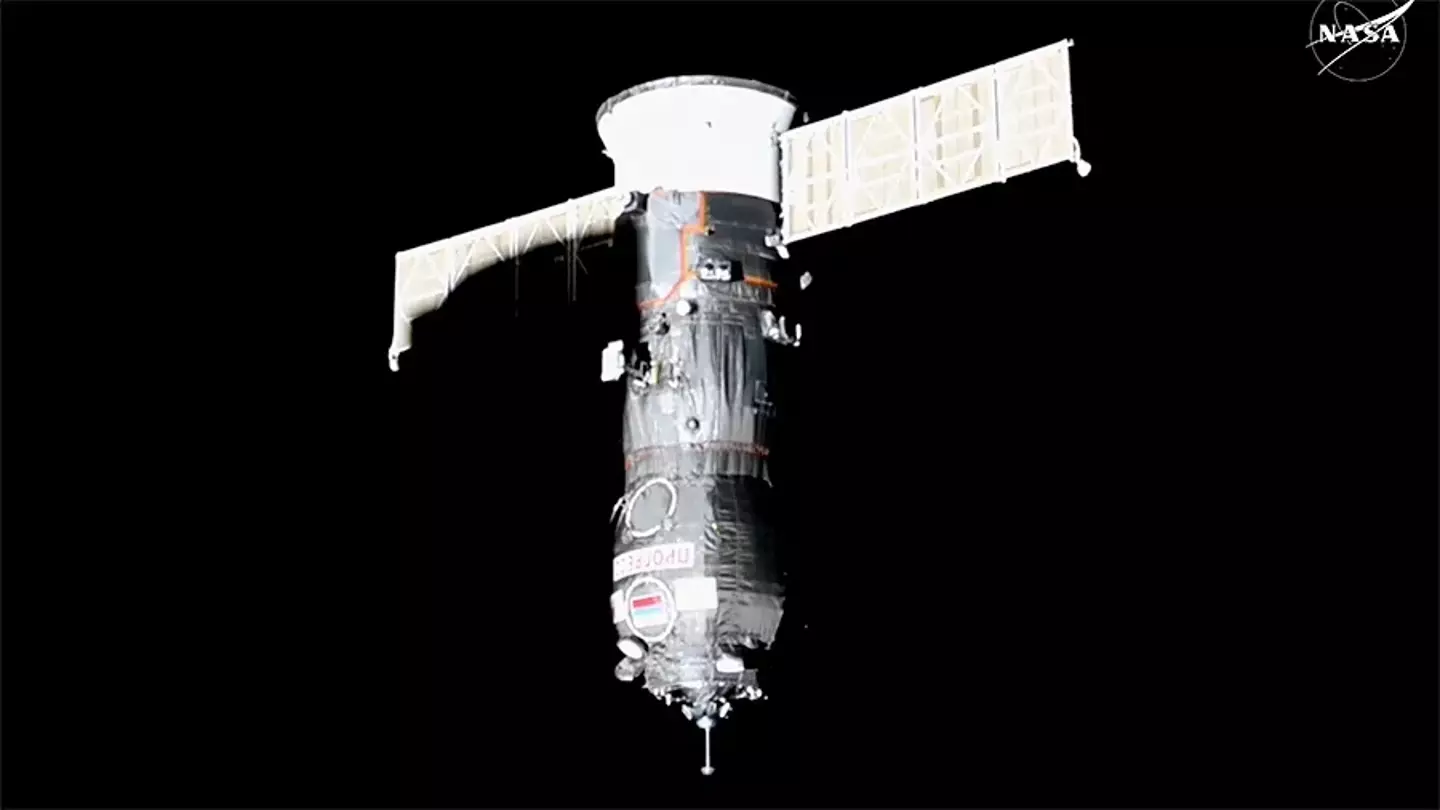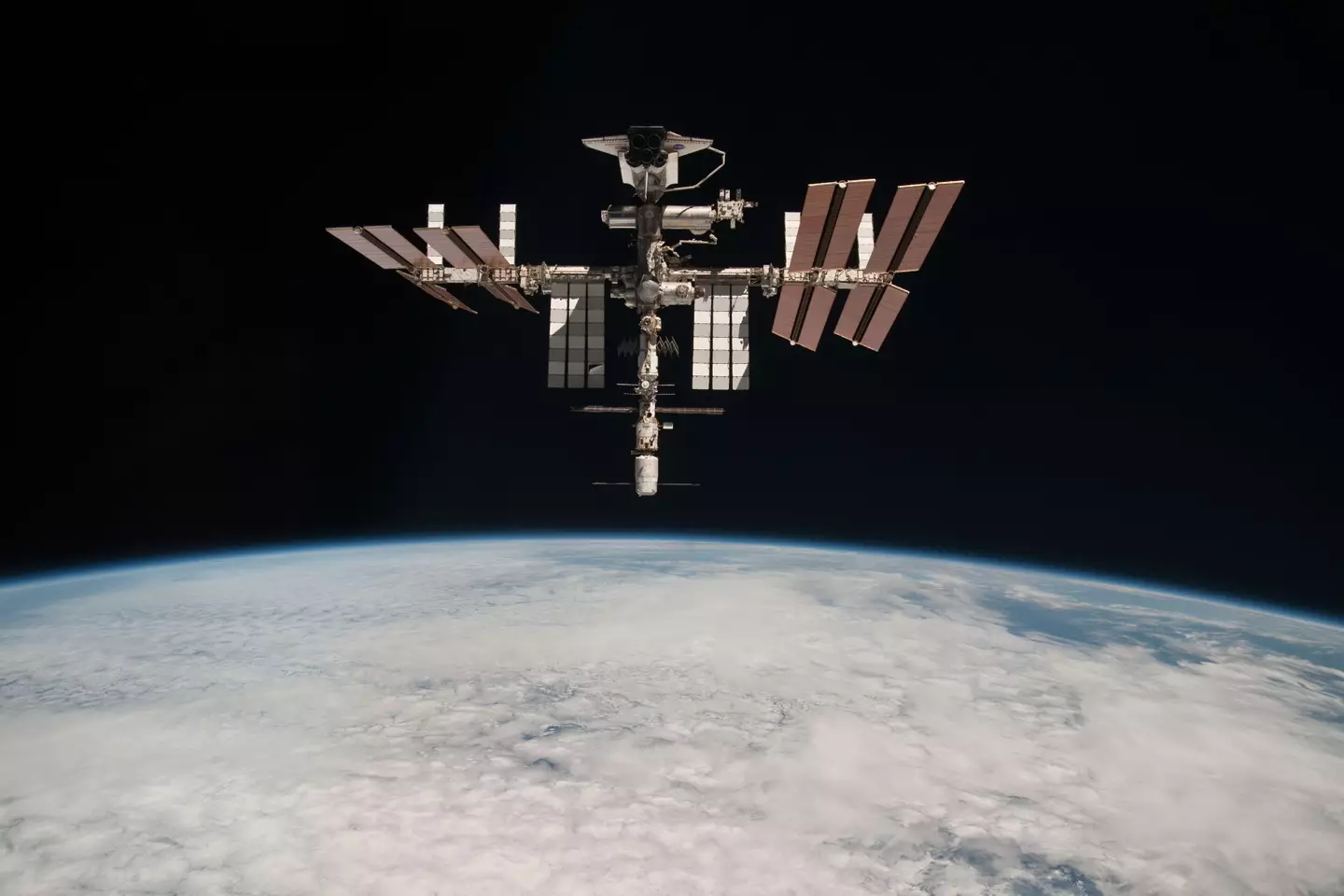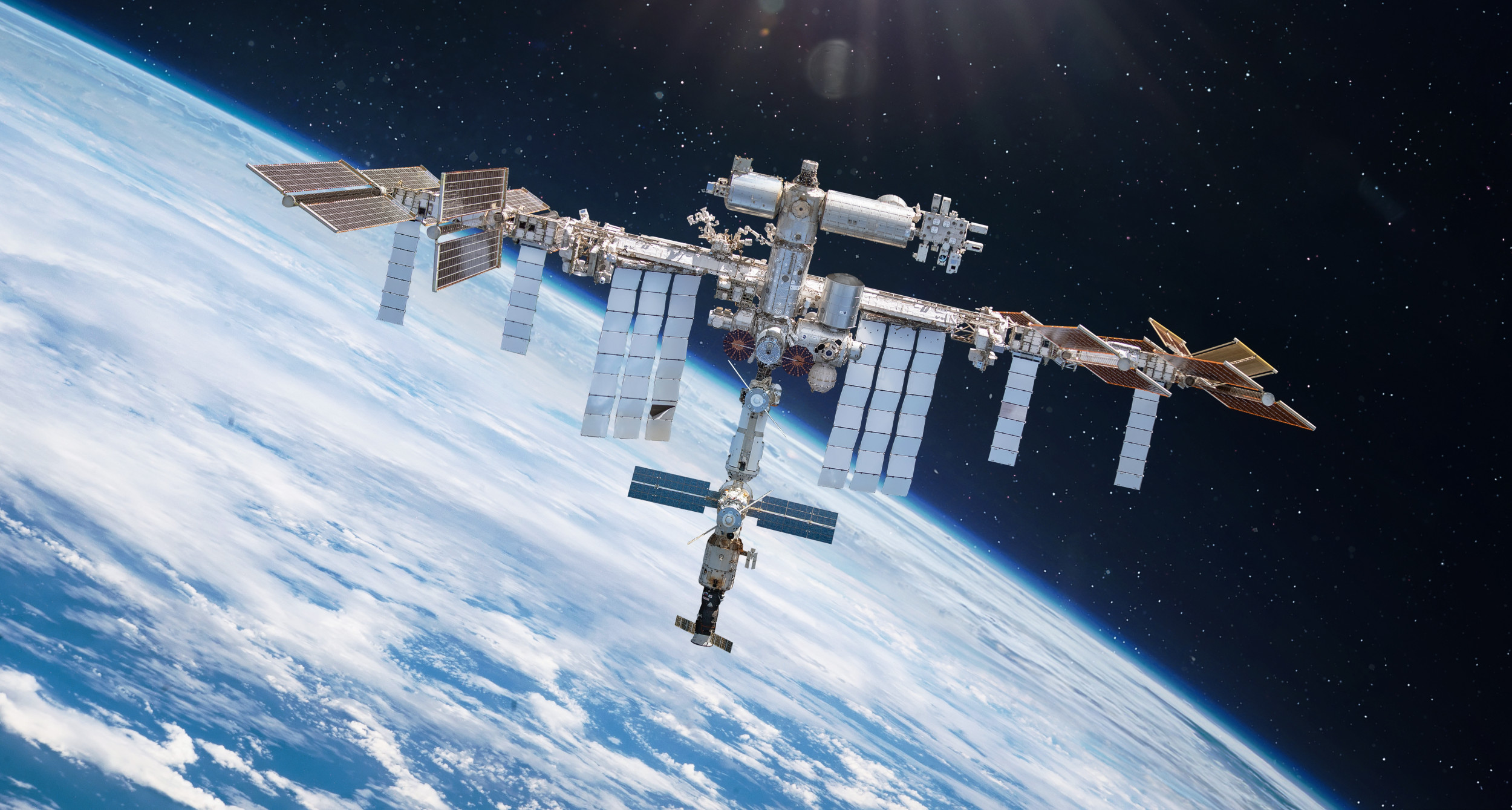The crew of the International Space Station (ISS) were forced to immediately shut off air flow to a docked cargo ship after a 'toxic' odour was detected by astronauts on board.
Delivering roughly half a years' worth of food, drink, and other supplies such as medicine, the Progress MS-29 cargo spacecraft had docked on the ISS Poisk module on Saturday (23 November).
But alarm bells were raised after the ISS crew detected a foul smell coming from the Russian spacecraft. Cosmonauts from Russian space agency Roscomos detected the smell and rushed to close off contact with what could be inside Progress MS-29.
As well as a nasty smell, small droplets of fluid were detected from Progress MS-29, further escalating the problem for the ISS.
Launched in 1998, the space station has been carefully crafted over the last 26 years through an international collaborative effort involving NASA (USA), Roscosmos (Russia), the ESA (Europe), JAXA (Japan), and the CSA (Canada).
It's time in space is almost over, though, with a plan to de-orbit it to Earth in 2030.
The crew on the ISS - including stranded astronauts Sunita Williams and Barry Wilmore - described the smell as 'toxic', shutting off its hatch to avoid any potential contamination on board the space station. That is according to communications between mission control in Houston and the onboard crew, reviewed by Russian Space Web.

The Progress MS-29 spacecraft was behind the smell (NASA)
As a result of the flagged incident, the ISS triggered a number of programmes to clean the station of potential contamination. Russian cosmonauts donned hazmat suits in order to activate the programmes.
"After opening the Progress spacecraft’s hatch, the Roscosmos cosmonauts noticed an unexpected odour and observed small droplets, prompting the crew to close the Poisk hatch to the rest of the Russian segment," NASA said in a statement.
After being reviewed, tests found that the air quality in the potentially contaminated segments of the ISS was at normal levels, with no immediate danger flagged.

Inside the ISS (Dean Mouhtaropoulos / Getty Images)
Following this, the hatch to the Progress MS-29 spacecraft was reopened with roughly three tonnes of food, supplies, and fuel brought on board the ISS on the Sunday.
From here, Progress MS-29 will remain docked to the ISS for another six months.
During this period of time, astronauts will put all their waste in to the spacecraft before it finally detaches and burns up to a crisp when entering Earth's atmosphere.

The ISS orbiting the Earth (Getty Stock Images)
It came just days after the ISS was pushed off its trajectory by another Russian spacecraft due to the looming threat of debris smashing in to the space station.
NASA officially said this was necessary 'to raise the orbit of the International Space Station to provide an extra margin of distance from a piece of orbital debris from a defunct defense meteorological satellite that broke up in 2015'.
Pushing the ISS for five minutes and 31 seconds, the spacecraft altered the station's orbit and ensured the safety of those on board.








.png)










 English (US) ·
English (US) ·